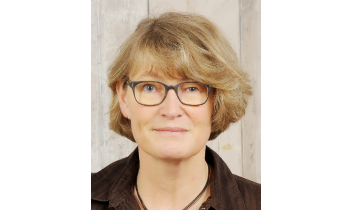
Interview with Marion Wilkens, patient representative in EARCO
Marion Wilkens is president of the patient organisation Alpha1 Deutschland e.V. (www.alpha1-deutschland.org) and an effected patient.
What is the EARCO project?
EARCO stands for European Alpha-1 Research Collaboration. It is a pan-European network committed to promoting clinical research and education in alpha-1 antitrypsin deficiency (AATD). The core project is the European AATD Registry, a collaboration open to all Investigators around Europe caring for patients with AATD. Please read more under: https://www.earco.eu/
How long have you been involved in EARCO and in what ways?
The Steering Committee consists of 2 patient representatives and several researchers who have been working for patients for many years. I was proposed by my colleague Karen O'Hara (UK), who was already part of the team, in summer 2017. I thought about it briefly but then applied and was accepted by the chairs. Alpha1 Germany has always been internationally involved and has been networking with many patient representatives around the world. As a patient representative in the steering committee of EARCO you are involved in everything, there are no secrets, you can question everything.
Has your role developed in any way?
At the beginning I was just a listener. I had to learn first what the project meant. Through questions, however, I understood more and more. Later I was able to ask whether they had thought of this or that, which is so important for us patients, but was forgotten by the doctors and researchers. Today I am a team member discussing everything about patients and our wishes and concerns.
In what ways has your/patient involvement made an impact on the project?
It is important not to forget the patients' point of view: researchers sometimes think differently. Moreover, they are all pneumologists, but our disease also affects the children, the liver, the skin and the psyche. A milestone was therefore the survey "Unmet needs of patients", on which we as patients were able to have a great influence.
What have been the greatest opportunities and challenges of being involved?
To be allowed to influence the research direction and the data of the register – at least a bit – that’s great! It is a network of researchers and patients at one table at eye level - also great! Nevertheless, it was a challenge because of the language and the technical jargon.
How can a patient prepare for being involved in such a project? What would be your top tips for someone thinking about getting involved in an international health research project?
Be well informed about "what is important for the patient" and dare to ask questions - no matter whether you have difficulties understanding due to language or gaps in knowledge. It is often precisely these questions that make everyone at the table think and reflect. If you have the chance to get involved, you should definitely take it. It is about us, us patients!
Anything else??
It's a pleasure to be included. Being part of new research, of the registry development, of a European collaboration and searching for a cure in a rare disease - that's a good feeling for a patient!
Alpha1 Germany e.V. is a Non-profit patient organisation with nearly 900 members, we are national and internationally active.
In Germany, about 20,000 people are affected by Alpha-1-Antitrypsin deficiency, experts estimate. Only a small part of it has been discovered so far or diagnosed and thereby correctly treated. This is a high number of unreported cases. And: On average it takes 5 - 7 years until an AAT deficiency is diagnosed. Our goal is to bring this disease more strongly into the awareness of doctors and research and the general public. Therefore we organize regular information days for adults (with approx. 250 participants) and children, to which we specifically invite speakers who work intensively with the AAT deficiency.